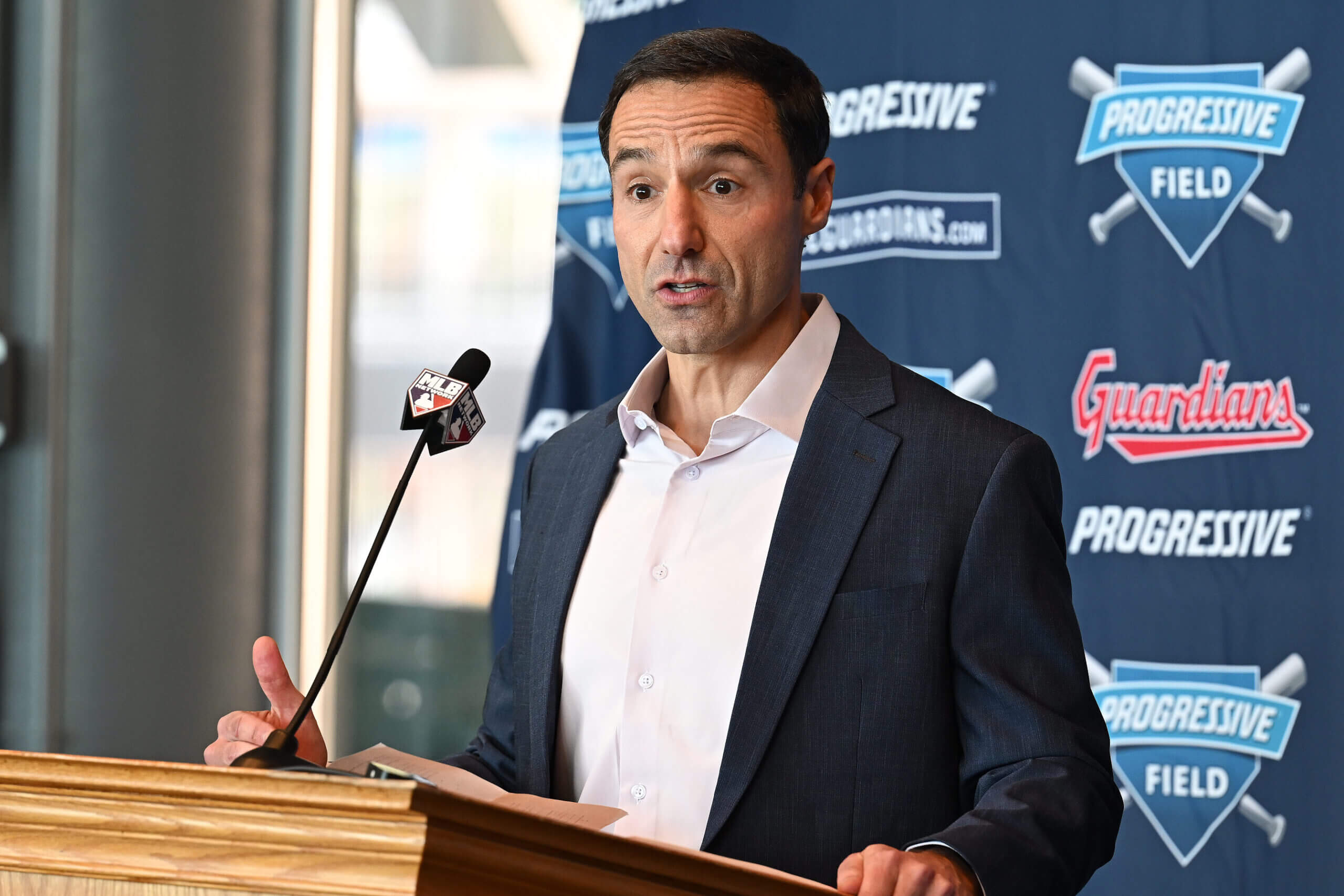This is the second in a three-part series exploring how the personalities of MLB executives impact baseball’s trade deadline. Part one explored the various styles of traders. Part three is coming Wednesday. The Athletic has live coverage of the 2025 MLB trade deadline.
Congratulations! You just scored your dream job, running the front office of a Major League Baseball team. Perhaps you are the president of baseball operations. Perhaps you are the chief baseball officer. Or perhaps you are merely the general manager. No matter the title, the role carries tremendous responsibility under heightened scrutiny.
Perhaps you think you’re ready for this. After all, you’ve spent a lifetime taking management courses, studying actuarial tables and playing fantasy baseball. But you are about to enter an elite, exclusive club of 30 decision-makers, and you need to know how to behave yourself.
We’re here to help.
As part of a series of stories about how executives navigate interpersonal relationships at the trade deadline, The Athletic asked these decision-makers: When trying to make a trade, what sort of behavior makes you want to throw your phone against a wall? Several executives spoke on condition of anonymity in order to provide an unvarnished look at how their front offices work.
Most responses began with laughter. Some stuff is obvious: Do not fiddle with a player’s medical records. You will get suspended. In general, deceit is a dead end. “You get caught not being transparent, lying, you’re done,” Atlanta Braves president of baseball operations Alex Anthopoulos said. “It’ll impact your ability to do a deal forever with that person.”
Outright dishonesty is a rarity, executives said. But you already knew that. You had to be pretty smart to become a POBO/CBO/GM.
“I would say the vast majority of executives in the game right now I have found to be good-faith actors,” New York Mets president of baseball operations David Stearns said. “There is real reputational risk to not being one. This is a small enough industry, where you, by definition, can only do deals with 29 other clubs. If you start systematically alienating a subset of those clubs, you’re going to hurt your organization.”
So here is a four-step guide on how not to do that.
1. Don’t insult a player — or the GM’s intelligence
Early in his tenure as general manager of the Toronto Blue Jays, Anthopoulos was haggling with Kenny Williams, the longstanding head honcho for the Chicago White Sox. They were discussing White Sox utility infielder Jayson Nix. In an attempt to drive down Williams’ asking price, Anthopoulos brought up some of Nix’s shortcomings.
Williams cut off his youthful counterpart.
“If he’s got all these issues,” Williams said, as Anthopoulos recalled, “why ask me about him?”
Anthopoulos pocketed the wisdom. In this business, salesmanship isn’t a skill. It’s actually kind of annoying.
“If you’re trading a player, don’t talk up the player,” Anthopoulos said. “If you’re trading for the player, don’t talk down the player, because you’re asking to acquire him.”
Every team has its own scouting department, its own analytics wing, its own value system. Your job as an executive is to figure out how those 29 other teams view the sport, and try to find a fit based on your own needs. When making a trade, executives said, your goal should not be to change someone’s mind. You will be wasting your time and trying their patience.
“I don’t look at it as though we’re going to convince our peers to do anything that they wouldn’t otherwise do,” said Cleveland Guardians president of baseball operations Chris Antonetti.

Cleveland’s Chris Antonetti has earned a reputation for seeking value in trades. He still tries to make the deals make sense for the other team. (Jason Miller / Getty Images)
That doesn’t mean you can’t make an outrageous proposal. Jerry Dipoto, the prolific deal-maker and president of baseball operations for the Seattle Mariners, has a simple rule for kicking around ideas: I won’t laugh at your proposal if you won’t laugh at mine.
“We’ve had some proposals that I never would have considered for a moment,” Dipoto said. “But I never wanted to throw my phone, because what they’re doing is giving you insight into what they’re trying to do.”
So go ahead. Shoot for the moon. Just try not to be rude, and accept that you might not get anywhere.
“As long as you try to present trade ideas respectfully and not offensively … ‘Just a thought, just brainstorming here … ’” Milwaukee Brewers general manager Matt Arnold said. “I like to brainstorm with guys. Especially guys that you have relationships with. I think good things can come out of that.”
2. Get your crew on the same page
You won’t be the only person from your front office engaged in trade talks. Most chief executives deputize their assistants to connect with assistants in other organizations. It is a good way for your underlings to network. Because the lieutenants are less pressed for time than you, they might have the freedom to examine more complicated scenarios.
So, as the kids say, let your gang cook, right?
One problem.
Here’s an annoying situation outlined by several chief executives: An assistant general manager is engaged with someone from another team. The two have crafted an interesting concept for a trade. Excited by the possibility, the chief executive will ring up his own counterpart — only to hear that executive say there is no way the other team would do that deal.
“That has happened to us a couple of times, where one of our AGMs is like, ‘Hey, we think we’ve got traction here,’” Minnesota Twins president of baseball operations Derek Falvey said. “But then we come to find out later it was a little bit of unsupervised play on the other side.”
So do yourself a favor. In the weeks leading up to the deadline, gather your crew. Provide clear instructions on who you are willing and unwilling to trade. Take advantage of the group’s enthusiasm. But don’t let them freelance. That drives other teams bonkers.
“The more you work down the hierarchy, the more excited people are to be involved in a trade,” said one executive, “As long as it’s f—ing real.”
The behavior of a front office reflects on the boss. A haphazard approach can irritate other clubs. And it can make them less willing to engage with you, all because you let one of your assistants cook without providing the proper recipe.
“If you don’t like the way a club operates,” Philadelphia Phillies president of baseball operations Dave Dombrowski said, “you may have a tendency to not make as many deals with them.”
3. Try to avoid cold feet
Executives often like to remind themselves: A trade isn’t a trade until it’s logged in eBIS, the electronic Baseball Information System, which MLB uses to record every roster move.
“You never go in expecting a transaction to happen,” said Tampa Bay Rays president of baseball operations Erik Neander.
The discussions can last weeks or longer. Sometimes it can represent the culmination of a concept floated months before. The Dodgers spent several years trying to pry Tommy Edman from the St. Louis Cardinals before swinging a three-team deal that included him last summer. You need to practice patience.
Because there are so many things that can go wrong along the way. The players can get injured. Your owner might squash the move. Your lineup might ignite a wild-card push, or a sudden bullpen collapse might turn you into a seller. All of those are understandable.
What is less easy to swallow, executives said, is when the deal derails for no good reason.
“Getting you to the two-yard line, and then when nothing about the situation has changed, backing off,” Stearns said. “That’s where executives can run the risk of alienating their counterparts.”
Sometimes that can represent a true change of heart. Sometimes it can represent a concern that you’re getting swindled.
“A lot of it is just cold feet,” Chicago White Sox general manager Chris Getz said. “And, let’s be honest, there’s some clubs that have a history of doing a lot better than others in deals. So maybe therefore [the other club] shies away, like, ‘What are we missing here?’”
Or sometimes it can represent a lack of conviction in your prior negotiations. And that can damage your reputation.
“If you feel that somebody has told you that they’d make a deal for X and then you offer them X, and then they don’t make the deal — I would say that would be something that would probably frustrate me,” Dombrowski said.

Whatever Dave Dombrowski and Andrew Friedman are discussing, they are probably doing it without wasting anyone’s time or suffering from cold feet. (Brian Rothmuller / Icon Sportswire via Getty Images)4. Don’t waste someone’s time
This might be the most common grievance of all. And there are so many ways to do it.
You can do it on the front end, by holding your cards too close to the vest. “Some teams will just not even give you names,” said one executive. “It drives me crazy. You don’t have to commit to anything. Just tell me who are some guys you like, so I have some idea where this might be going.”
It is not unusual for less experienced executives to adopt this pose. Los Angeles Dodgers president of baseball operations Andrew Friedman became the Rays general manager at 28. He did not want to make a misstep and he thought there was value in fighting for every scrap of transactional value. He soon discovered “there’s a real fatiguing effect to the inefficient approach, that just isn’t that sustainable,” he said.
“I used to be more guarded,” Friedman added, “and I’m way less so now.” He added, “It wasn’t necessarily as worthwhile as I made it out to be.”
If you ask for what you want, you’ll have better luck.
“My thought is we’re not really in the espionage industry,” Dipoto said. “We’re just trying to put together good baseball teams.”
There are also ways to waste time in the middle of discussions.
“One thing that’s interesting is the non-offer offer,” Falvey said. “Where it’s like, ‘Hey, if you guys would do this …’ and then they make an offer. ‘Let us know and we’ll put it on the board and then get back to you.’ So they can evaluate it. So it’s like, ‘Hold on. You just offered us a subset of players for this deal. And you want to know if I’m going to say ‘Yes,’ so you can go back to the board to decide if you guys are a ‘Yes’?’”
“And I’ll admit: There have been times where teams have done it to us, where I’m just like, ‘Alright, we’ll do it back.’ It’s a little bit of, ‘Alright, if you’re going to play that game …’”
You can waste time near the completion of a deal by dragging your feet.
“It’s living out a scene from the movie ‘Groundhog Day,’ where you have a conversation that is promising, and then the next day, you talk again, and it’s as if that conversation never happened,” Friedman said. “That is difficult.”
Perhaps the silliest way to waste an executive’s time is simply being unresponsive. It’s common courtesy — and also common sense.
Got all that? Don’t try to be too slick. Don’t try to browbeat your rivals into making a trade. And whatever you do, respond to all your messages.
Because the last thing you want is to live out the nightmare shared by your 29 peers.
“There’s one thing every GM will tell you,” Anthopoulos said. “You don’t want to wake up one day and say, ‘I can’t believe so-and-so was available and I didn’t know about it.’”
(Top illustration: Kelsea Petersen)
